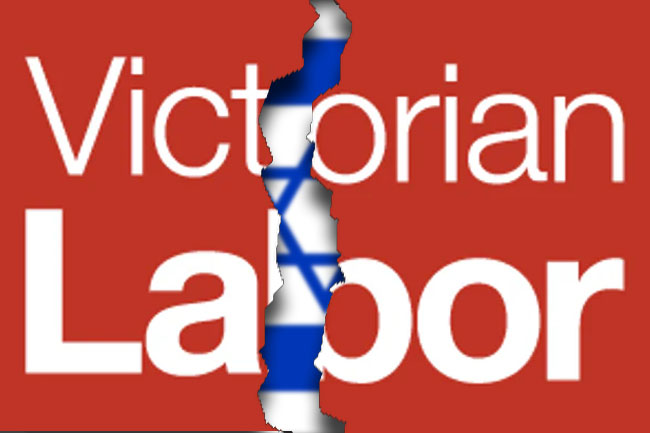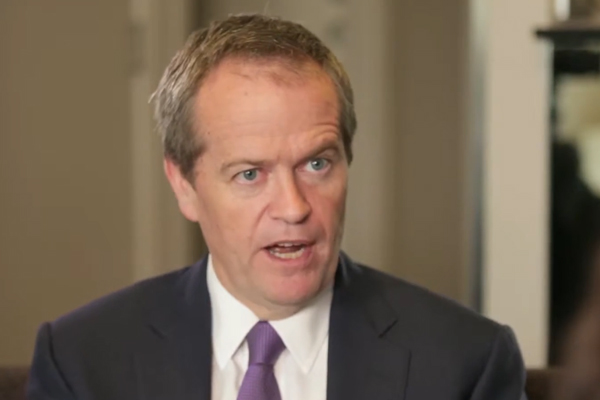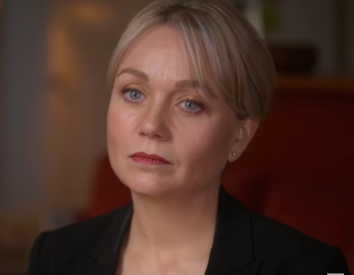Australia is in need of stronger bipartisan policy against human rights abusers, a move condoned by Greens leader Christine Milne, writes Peter Wicks.
SOME THINGS ARE supposed to be above party politics. Issues so important that ideology is put aside for the greater good of the country. Natural disasters, matters involving our military and, above all, the protection of human rights.
Sadly, debate around all of these “non-partisan” issues has become ferociously partisan from all parties, both major and minor. Perhaps none more so than those surrounding human rights abuses.
Last week, Labor’s foreign affairs spokesperson Penny Wong called for Australia to introduce its own Magnitsky Act to target human rights abusers.
The Magnitsky Act is designed to target individual human rights abusers. It allows for visa sanctions and the freezing of individuals assets, targeting them directly rather than targeting their country. Individuals deemed to be human rights abusers would be unable to hide funds in a country with these laws, nor invest in that country using the names of family members.
Currently, there are Magnitsky style laws in the U.S., the UK and Canada.
Leading the charge to see these laws put in place globally is Bill Browder. The law is named after Browder’s former lawyer, Sergei Magnitsky, who, after exposing a $230 million (AU$329 million) fraud in Russia, was jailed and tortured until his death.
Mr Browder has stated:
“If Australia does not have its own Magnitsky Act, the country is at risk of becoming a magnet for dirty money from human rights abusers and kleptocrats from around the world.”
Bill Browder started serious conversations about an Australian Magnitsky Act with former Greens leader Christine Milne, based on her commitment to human rights issues.
To her credit, Milne considered this type of legislation too important to be used as a political football and decided to put the interests of the country ahead of party interests. Knowing that it would likely go nowhere through the Greens, Milne was content to act as a facilitator and advisor and organised for Browder speak to Labor’s Mark Dreyfus.
I was part of a conversation with Mr Browder in 2018 in which he spoke highly of Ms Milne and made it clear that he respected her opinion greatly.
Unfortunately, Mark Dreyfus didn’t share Milne’s enthusiasm for the legislation but there were others within the Labor Party already thinking the Magnitsky Act could be a useful tool to further their own agenda.
This legislation seems like common sense, however, there are legitimate concerns that this legislation could be used by human rights violators to evade justice.
The Magnitsky Act was viewed by one anti-China group of MPs as a way to target China on human rights grounds. This same group is also the blindly pro-Israel group within Labor, leading to all kinds of concerns regarding the legislation.
Israel is one of the world's most frequent abusers of human rights. The occupation of Palestinian land and continued illegal expansion through settlements has resulted in the deaths of thousands of men, women and children. Hardly a day has gone by in the 72 years of brutal and continuing military occupation in which a Palestinian has not had their human rights breached by Israeli forces or citizens.
There are wide concerns that any Australian Magnitsky legislation may have intentional loopholes within it allowing Israeli war criminals to not only evade justice but allow them to claim Australia investigated them under a Magnitsky Act and were found to have no case to answer.
Some may consider this a stretch, however, Australia recently attempted to block the prosecution of Israeli war criminals by the International Criminal Court. These were individuals accused of murder and torture — in many cases, children. The loophole Australia tried to use was that Australia does not recognise Palestine as a state and therefore believed the ICC had no jurisdiction for the prosecution of alleged crimes there. Fortunately, most of the civilised world and the ICC recognise the Palestinian state, so our protests were dismissed.
Any Magnitsky legislation would need bipartisan support to pass, so considering the Morrison Government recently sought to help Israeli’s accused of torturing children evade justice, it suddenly seems far less of a stretch. Legislation here would be based on Australian views on jurisdiction, not the International Criminal Court's or most of the world's, meaning this loophole could be used here and may encourage violators to park their blood money here.
Christine Milne was keen to see the Magnitsky Act become globalised and for the lists of abusers to be linked and harmonised between countries, thus avoiding any localised bias.
Another example put forward by Milne is that of Cambodia’s Hun Sen. In 2014, the Coalition signed a refugee deal with Cambodia in desperation to have an option to settle those it has been holding indefinitely on Manus Island and Nauru for what seems like an eternity. This deal is costing Australian taxpayers millions and leaves Hun Sen in a position to pressure the Australian Government for exclusion from any violators list.
Milne explains the former Khmer Rouge soldier could then:
‘...continue to abuse with impunity and pour more laundered money into Australia. Furthermore use his absence from the list to argue against being listed elsewhere.’
These are just a couple of examples and, as Milne explained to Independent Australia, there are others with whom Australia may have conflicting interests.
Related Articles
- EXCLUSIVE: Fate of Vietnamese asylum seeker children hangs in the balance
- ScoMo and Crabb: No human rights on the menu
- The other victims of torture
This is why harmonising lists between countries is vital. Ideally, those who appear on the lists should be determined by the United Nations or the International Criminal Court. This would not be perfect, however, it would provide for a more balanced approach to the process. It would be good to see some other nations have input, not just Western countries.
Human rights apply to all humans, thus the term. Any legislation needs to apply globally, not just targeted towards nations such as China and Russia.
Despite being the first to initiate discussions regarding Magnitsky style legislation, the Greens have been largely left out of discussions and are heavily outnumbered on the Foreign Affairs, Defence and Trade Joint Parliamentary Committee. This committee consists largely of the most conservative MPs from both major parties, with only a couple of exceptions.
Given the Greens are not a party of government, they have far less vested interest in who is excluded from any list. Therefore, I believe it is in Australia’s best interests they have greater input into any bill involving the creation of a list of human rights violators.
The Greens spokesperson for Immigration and Justice, Senator Nick McKim, was unavailable for comment.
In a senate speech in February about the Human Rights Committee he sits on, Senator McKim had this to say about how partisan agendas were overtaking any commitment to human rights:
“...this committee should be operating as a technical committee which, in a nonpartisan manner, assesses legislation before this parliament… and assesses that legislation against the international human rights instruments to which Australian governments have committed our country by signing up to them.”
I share the concerns of Christine Milne and many others regarding legislation of this type — human rights apply to all.
After all, the spirit of the Magnitsky Act is to punish human rights abusers, not to protect them.
Peter Wicks is an Independent Australia columnist and a former Federal Labor Party staffer. You can follow him on Twitter @MadWixxy.
 This work is licensed under a Creative Commons Attribution-NonCommercial-NoDerivs 3.0 Australia License
This work is licensed under a Creative Commons Attribution-NonCommercial-NoDerivs 3.0 Australia License
Support independent journalism Subscribe to IA.















